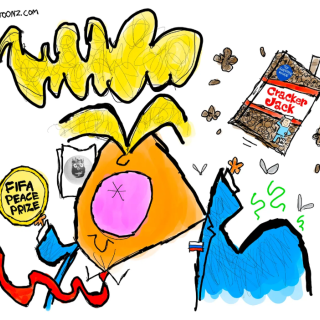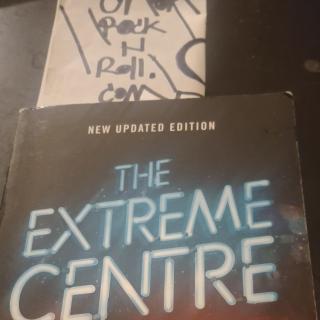Generally speaking, I don’t comment on or criticize the voting behavior of others. As old folks used to say when I was growing up, my mouth ain’t no prayer book. But if I live to be one hundred, I will never understand why any black person in this country voted for Donald Trump, and I know at least one who did. Indeed, Trump captured eight percent of the African American vote – the worst in the last forty years, but astonishing nonetheless.
Most African Americans wouldn’t think of voting for a Republican candidate, much less one as racist as Trump. Trump knew this, and at a rally in the predominantly white suburb of Dimondale, Michigan in August 2016, he taunted black voters, urged them to ditch the Democratic Party, and “try Trump.” Mocking what he sees as blacks’ wrongly placed allegiance to the Democratic Party, who many believe take black voters for granted, he said to black Americans: "You're living in poverty. Your schools are no good. You have no jobs. Fifty-eight percent of your youth is unemployed.” Trump then asked, “What the hell do you have to lose?"
America was born in racism, discrimination and inequality. Moreover, I liken that racism and white nationalism in America are like Gill Man, the creature in the 1954 science fiction trilogy who is captured and dragged from the water so he can be studied and understood. Gill Man always manages to break away and wreak havoc, and the last sight of him is always that of watching him purposely walk back into the water and disappear. White America thinks that racism and white nationalism are dead, like Gill Man, and as proof, they offer up the two-time election of Barack Obama. But Gill Man was just waiting for the right opportunity to remind people he was still alive and still dangerous. So were white supremacists.
To be fair, Trump did not invent white supremacy and racism. But he has been a cheerleader for it even before he ran for the presidency. Since the 2016 campaign and his election, Trump has “opened the door to assertions of white identity and resentment in a way not seen so broadly in American culture in over half a century, according to those who track patterns of racial tension and antagonism in American life,” the New York Times reported near the end of the 2016 presidential campaign. Specifically, Trump has “electrified the world of white nationalists,” the newspaper noted. A company that tracks social media revealed that “almost 30 percent of the accounts Mr. Trump retweeted… followed one or more of 50 popular self-identified white nationalist accounts.”
The advances brought about by the modern day freedom movement forced even the most rabid, white, southern politicians to tone down their naked racism. Some people call it being “politically correct,” a term I despise. When has it been correct to call someone a spic, a nigger, or a wop? To make fun of people who are physically or emotionally challenged? To engage in name calling when we don’t like someone? To mock a person’s religious beliefs? Sheesh! Even George Wallace apologized for his actions, and Strom Thurmond escorted Clarence Thomas around Washington, D.C. when he was nominated for the Supreme Court.
In the book What The Hell Do You Have to Lose? Trump’s War on Civil Rights, author Juan Williams uses six examples of how the president’s policies have hurt black America: voting, education, public accommodations, equal rights, employment and housing. These were the issues that propelled the modern freedom movement, and birthed the Civil Rights Act of 1964, the Voting Rights Act of 1965, and the Civil Rights Act of 1968, often referred to as the Fair Housing Act. Each chapter consists of a history of the issue, and a short biographical essay on a person who places the issue in context with then and now.
For the most part, Williams chose people who are often overlooked in the study of African Americans’ fight for equality; I was happy to see that he highlighted the work of the Student Nonviolent Coordinating Committee (SNCC) and Bob Moses, who was the architect of so-called Freedom Summer. In the battle for equality in public accommodations, however, his essay focuses on the late – and white – Senate minority leader, Everett Dirksen, which seems an odd choice. Furthermore, women get short shrift in the book. For someone who has written widely on the subject of African Americans and civil rights, this is indefensible.
While the book is very general, it’s a good source for people who want to learn about the battle for civil rights in America. And like Martin Luther King, Jr. does in his Letter From a Birmingham Jail, Williams doesn’t let white moderates escape the lack of courage they displayed at so important a time in our nation’s history.
What The Hell Do You Have to Lose? lays bare Trump’s willful ignorance about American history, and African Americans, and his intentional campaign to obliterate the progress that the country has made in its long and fitful journey to a more just and equal society. It’s patently clear that blacks who supported Trump’s policies gave up a whole helluva lot.
Dr. Marilyn K. Howard earned a BA in criminal Justice from Ohio Dominican College; an MA in political science from The Ohio State University and her PhD in American history from The Ohio State University (Dissertation: Black Lynching in the Promised Land: Mob Violence in Ohio 1876 - 1916). She is an associate professor in the Department of Humanities at Columbus State Community College. Dr. Howard has twice received the Distinguished Teaching Award from Columbus State. She continues to conduct research on the lynching of black men by white mobs in Ohio.



